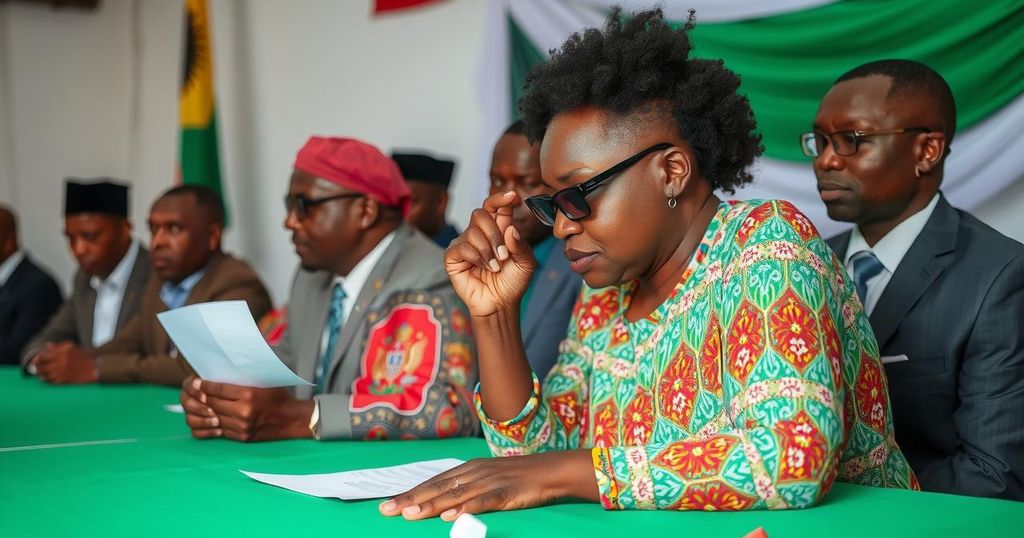Comoros Parliamentary Election Amid Opposition Boycott and Controversy

Comoros held a parliamentary election boycotted by some opposition leaders who alleged authoritarianism under President Azali Assoumani. Political discontent has been prevalent since Assoumani’s prior fraudulent election claims. Approximately 330,000 voters were registered, but low turnout is anticipated due to public disillusionment. The political situation reflects ongoing instability in the archipelago.
On Sunday, Comoros conducted a parliamentary election amidst a boycott by certain opposition factions. Leaders accused President Azali Assoumani and his ruling party of exhibiting increasingly authoritarian behavior, raising doubts regarding the electoral process’s integrity. The election aims to fill 33 legislative seats, with results anticipated next week. Approximately 330,000 out of 850,000 citizens were eligible to vote, but opposition groups predicted a low turnout due to public disillusionment with the governance.
President Assoumani’s Convention for the Renewal of the Comoros previously secured 20 of the 24 contested seats in the 2020 parliamentary elections, which opposition leaders deemed a “masquerade.” Furthermore, allegations of electoral fraud have marred his presidential win last year, which triggered public unrest. Notably, the Juwa Party, associated with former President Ahmed Abdallah Sambi, was among the opposition groups that abstained from participating, continuing its boycott from 2020.
Historically, Comoros has experienced multiple military coups since gaining independence from France in 1975. Assoumani, a former military officer, initially assumed power in 1999 and has since navigated political landscapes to maintain his presidency through successive elections, notably altering the constitution in 2018 to circumvent term limits. Observers from the Africa Center for Strategic Studies have criticized his administration for political repression and the lack of competitive elections. Despite concerns regarding Tropical Cyclone Dikeledi, the electoral proceedings continued as scheduled.
Comoros, an archipelago situated off the east coast of Africa, has continuously experienced political instability since its independence from France in 1975. The island nation has faced numerous military coups, with Azali Assoumani, a former military leader, first coming to power in 1999. His administration has been marked by significant constitutional alterations that allowed him to extend his presidency while suppressing dissent. The political climate has seen allegations of electoral fraud and repressive governance, contributing to widespread disillusionment among the populace.
The parliamentary election in Comoros highlights ongoing political tensions and growing concerns regarding governance under President Assoumani. With opposition parties boycotting the election amid allegations of authoritarian practices, the integrity of the electoral process remains in question. The situation elucidates significant challenges facing Comoros, including public disenfranchisement and the need for political reform. As results are awaited, the implications of this election will resonate within a historically tumultuous political landscape.
Original Source: abcnews.go.com








